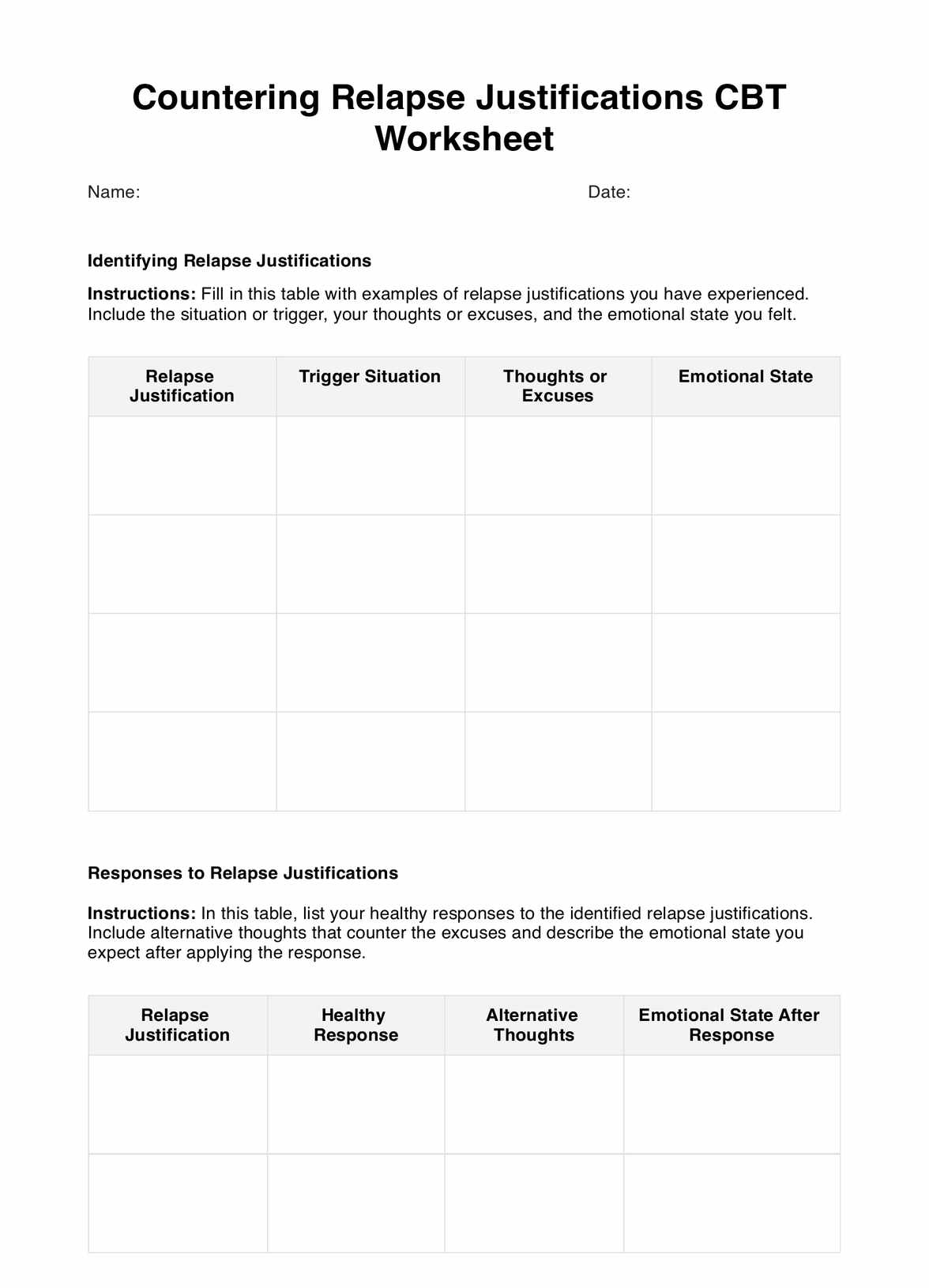Completing the Countering Relapse Justifications CBT Worksheet can vary depending on an individual's pace, but it typically takes 30 minutes to an hour to complete it comprehensively.

Countering Relapse Justifications CBT Worksheet
Start your recovery journey with the Countering Relapse Justifications CBT Worksheet. Identify triggers, counter excuses, and stay committed to sobriety.
Countering Relapse Justifications CBT Worksheet Template
Commonly asked questions
The worksheet is best used when an individual encounters triggers or challenging situations that may tempt them towards substance use, providing a structured approach to effectively address and counter these justifications.
The Countering Relapse Justifications CBT Worksheet is designed for individuals in recovery from substance abuse, including those receiving treatment, participating in support groups, or working on their sobriety independently. Both clients and healthcare professionals can use it in various settings.
EHR and practice management software
Get started for free
*No credit card required
Free
$0/usd
Unlimited clients
Telehealth
1GB of storage
Client portal text
Automated billing and online payments











